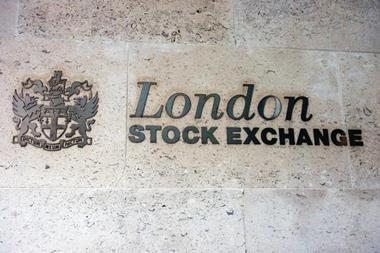Pressure is mounting on companies to ‘go green’ amid fresh calls for a common carbon reporting standard
As the devastating effects of climate change continue to be felt around the world—this week a record storm surge almost wreaked havoc in countries with North Sea coasts—the pressure mounts on companies and consumers alike to do their bit to reduce harmful emissions.
The greening of the corporate world is a well publicised phenomenon, as businesses attempt to cash-in on the contemporary cultural shift towards environmental consciousness and healthy living.
Efforts to connect with ecologically-minded consumers have led companies to brand their products with anything from fair trade logos to carbon emissions labels. According to some research, however, consumers find the plethora of environmental, ecological and fair-trade product labels confusing.
Attempts at consistency have been made, just this week a coalition of businesses and MPs wrote a letter to the British Prime Minister, maintaining that the lack of standardized carbon reporting for British companies is impeding the UK’s long term goals of reducing emissions and creating a low carbon economy.
The initiative, following a report by the Aldersgate Group which finds that very few FTSE 350 companies have credible carbon reporting mechanisms in place, calls for enabling powers in the Climate Change Bill to ensure that UK companies report clear and comparable information on their greenhouse gas emissions and other factors relating to climate change.
The move was preceded in October by a similar coalition of environmental agencies, UK companies and cross party MPs who wrote an open letter to Hilary Benn, the environment secretary, and John Hutton, the business and enterprise secretary, calling for standardised carbon reporting.
In that case, the initiative was prompted by research that found the UK's top companies are failing to act on climate change as less than half of the FTSE 350 companies have introduced schemes to reduce greenhouse gas emissions.
“In the future I expect a company's carbon statement to be as prominent as its financial statement. That is because investors are increasingly demanding reliable information about a company's global carbon footprint, as well what it's doing to reduce its CO2 emissions. Proper financial reporting is a no-brainer. Carbon reporting must be the same.
Environment and Climate Change Minister Ian Pearson
At the same time, insurers are increasingly offering premium discounts to firms that commit to reducing pollution and emissions.
While reducing harmful emissions is clearly a good thing from an environmental perspective, it could be good for business too. Not only does the prospect of government’s initiating carbon taxes loom large these days. But this week’s letter also argues that carbon emissions are now a material commodity with an economic and financial value to business, investors and the city.
Environment and Climate Change Minister Ian Pearson, addressing a meeting of US businesses in New York on 9 May, said: ‘"In the future I expect a company's carbon statement to be as prominent as its financial statement. That is because investors are increasingly demanding reliable information about a company's global carbon footprint, as well what it's doing to reduce its CO2 emissions. Proper financial reporting is a no-brainer. Carbon reporting must be the same.’
Others in the financial community appear to be of the same mind. In October, Merrill Lynch and Trucost launched a European carbon leader’s index, used to rank companies by carbon footprint. Simon Thomas, chief executive of Trucost, said at the launch: ‘[The index] substantiates Trucost’s long held view that mainstream investment decisions will increasingly have to factor in companies' carbon exposure.’
While, Paul Dickinson, chief executive of the Carbon Disclosure Project, a New York based independent organisation, said: ‘Increasingly investors view good carbon management as a sign of good corporate management.’
While standardisation may not always be the best way to proceed, it certainly appears that in this instance a move towards common standards would be well received.




















No comments yet